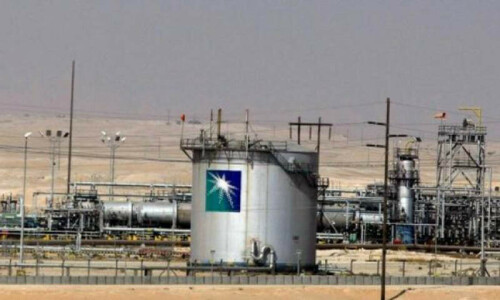Finally, economic managers in Pakistan have done something that they should have done much earlier. They have broadened the base of the consumer price index (CPI), factoring into it the prices in rural markets as well.
The CPI has now become more representative and inclusive. Naturally, inflation measured through it will now be closer to ground realities. The Pakistan Bureau of Statistics (PBS) has now started calculating urban and rural CPI numbers separately. To arrive at a national average inflation rate, it has begun combing the two numbers. This will help policymakers make more informed fiscal and monetary decisions. It will give them a better insight into whether incentives to farmers and utility tariff concessions to rural folk are translating into lower inflation in rural Pakistan. While broadening the base of the CPI, the PBS has also changed the base year from 2007-08 to 2015-16.
Thanks to this rebasing of the CPI, headline inflation for August remained 10.49 per cent. Inflation for July-August comes to 9.44pc. If we use the previous method for August, it would be 11.63pc for August and 10.98pc for July-August. So the change in the base year means some face-saving for the government.
Calculating urban and rural inflation rates separately will help policymakers understand various socio-economic phenomena
Still, 10.49pc CPI for August and 9.33pc for July-August show inflationary pressures remain high. It is yet to be seen whether the lowering of oil prices from Sept 1 will ease off these pressures or the power tariff for July, being implemented in September, will offset it. Much also depends on the oil price setting in the future. Regardless of which way international oil prices move, taxes and levies on domestic prices will likely remain the same or can even increase further. Owing to extreme fiscal imbalances, we should not expect any substantial relief in domestic oil prices even if global prices decline.
Under the new method, the national CPI average is arrived at by combining rural and urban CPI numbers. This average is calculated by using new weights assigned to each of the 12 groups of goods and services in the CPI basket.
For example, the transport group’s weight is now 5.91pc against 7.2pc in the past. The health group’s weight has been increased from 2.19pc to 2.79pc. The food group continues to remain dominant with 34.58pc weight, slightly lower than 34.83pc in the past. A substantial lowering of weight of the transport group means an increase in fuel prices will not move inflation numbers as forcefully as it would in the past.
New weights have been assigned keeping in mind people’s spending patterns with respect to the goods and services in a particular group of the CPI basket in rural and urban Pakistan. Greater weights assigned to the health component of the basket makes sense as increased health awareness has resulted in higher spending on health services and medicines in both urban and rural areas.
The housing and utilities group of the CPI basket now carries a weight of 23.63pc, far lower than 29.41pc in the past.
Seemingly, this also has been done keeping in view that the national average comes down as the spending on this account in rural Pakistan is substantially lower than the spending in urban areas.
Critics may question the change in the weight of the transport and housing and utilities segments that together make up one-third of the CPI basket. They may argue that this has been done to suppress the actual impact of hikes in electricity and gas tariffs. After all, during its year in power, the PTI massively hiked prices of oil, electricity and gas.
But PBS officials say they have done this to factor in the changes in monthly domestic prices of oil and a shift in the energy mix. They say that under the new methodology, they are using the weighted average of different slabs of electricity and gas prices rather than using the simple average.
Separately calculating urban and rural inflation is of particular importance. Before the end of the PTI’s term in 2023, we will have numerous sets of month-on-month and year-on-year urban and rural inflation data. That will become handy in understanding various socio-economic phenomena, including the pace of urbanisation, movement of labour and capital, effects of digitalisation in banking services and business, education, gender gap, financial inclusion and whatnot. That will help the government offer more targeted and tailor-made concessions and enable the central bank to reassess the process for the transmission of monetary signals.
Keeping rural inflation in mind, the SBP may find added reasons to push banks towards greater lending in agriculture and rural SMEs and encourage them to promote savings.
Besides, it will help policymakers examine how differently and with what frequency the wholesale price index affects the general price line in rural and urban areas. Similarly, the study of the correlation between general inflation and inflation for the poor (measured through the sensitive price index) will become more probing and help policymakers improve social safety nets.
Published in Dawn, The Business and Finance Weekly, September 9th, 2019












































